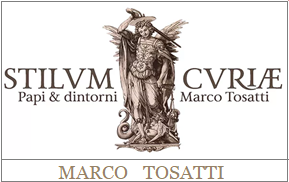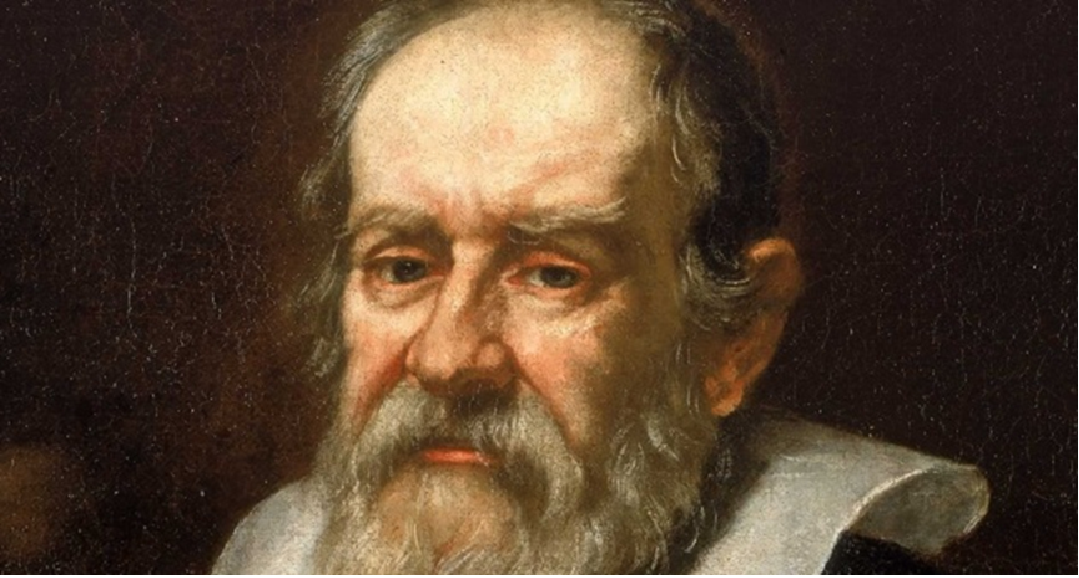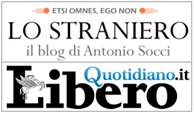For lack of other news these days as compelling as the Covington Catholic boys' saga,let me post here
a couple of Italian-focused but no less interesting items from Marco Tosatti and Antonio Socci.
Are the Bergoglians out to challenge
Salvini in the next elections?
All about a neo-Catholic political party in the works
Translated from

January 24, 2019
Pezzo Grosso has written us – with amazement and indignation – to comment on the attempt to give life to a sort of new Catholic political party by ex-Prime Ministers Romano Prodi and Enrico Letta, with Bishop Massimo Camisasca of as the matchmaker. Anyone who knows the careers of these partners and the exceptional milestones through which they brought our unfortunate nation can well understand PG’s amazement, and even more, his indignation.
 Dear Tosatti, things keep turning for the worse in the name of democracy. Democracy is an idea, not a fact. And it is a false idea when it lies and deviates from truth and natural law. Which becomes more intense and therefore dangerous when the filthiest transverse politics of power succeed to influence a democracy by the use of resources and means at their disposal.
Dear Tosatti, things keep turning for the worse in the name of democracy. Democracy is an idea, not a fact. And it is a false idea when it lies and deviates from truth and natural law. Which becomes more intense and therefore dangerous when the filthiest transverse politics of power succeed to influence a democracy by the use of resources and means at their disposal.
I beg you to read about this new consortium which implies a new coalition between the Church and big business. The Church in this case being [a formerly good] Bishop Camisasca of Reggio Emilia, getting into an alliance with ex-Christian Democrat Prodi [who famously prided himself as being an ‘adult Catholic’], so adult as to be considered decrepit - representative of the American Democratic Party establishment, president of the advisory Baord of Goldman Sachs, consultant to the international rating agency on Italy’s credit standing.
As if that were not bad enough, the third member of the founding committee of this new party is Enrico Letta, who was coopted as Prime Minister (President of the Council of Ministers) by then President Giorgio Napolitano, who replaced him with Mario Monti, who was later sacked by the same Napolitano who replaced him with Matteo Renzi.
And what are these three milords supposed to do? To launch Bergoglio’s own political party in time for the next European elections. Of course, the party will be ‘catholic’, And of course, it will be anti-Lega [Interior Minister Matteo Salvini’s party].
Of course the party will be ‘Europeanist, migrationist, environmentalist and pauperist”. It is exactly what Bergoglio wants, and with him, what the Italian bishops’ conference, George Soros and Emma Bonino and Emmanuel Macron want.
Dear Tosatti, don’t you feel like making a statement of protest? If the news about such a party is confirmed, then we have arrived at the unacceptable, something that is against nature. True Catholics should feel it is their resposnsibility to dissuade the vanguard from this initiative and to simply tell them: Just. Stop. There.
And from Socci, as always, a fascinating foray into Italian culture and history in his patriotic dedication to asserting everything that is good about the Italian identity...
 How Galileo was a souvrainist and populist by deciding
How Galileo was a souvrainist and populist by deciding
to write his later books in Italian, not Latin
Translated from

Januaryv 21, 2018
Let us say a scientist decided to write his important and innovative scientic essays in Italian and not in English which he knows well. And let us say he does this because he wishes that his essays may be read and understood not just by adepts but above all, everyone in Italy, including those sons of the people who do not know English because they had to go to work instead of going to school.
If that happened today, the person concerned would probably be assailed by charges of provincialism, souveranism (or sovereigntism) and populism. Accusations which these days will spare no one – all it takes is some hint that contradicts the dominant one-thought and its fashionable alienophilic cosmopolitanism. But something of the sort happened in the 17th century in Italy, and its protagonist is one who today is rightly and universally considered a giant of thought who gave much to mankind.
He was no less than one whom many consider the founder of modern science, whom everyone considers a model of genius, of openmindedness and opposition to pseudo-scientific and pseudo-philosophical conformism – Galileo Galilei.
Of course, the international language in his time – even for science – was not English but Latin which functioned then as English does now.
Annalisa Andreoni in her splendid book
“Ama l’italiano (segreti e meraviglie della lingua più bella)” (Love Italian: The secrets and wonders of a most beautiful language), notes that Gaileo is not only the inventor of the modern scientific method we all know, but he was also
the first major scientist to abandon Latin and choose Italian as the language with which to communicate his discoveries to the world”.
Yes, he wrote his earlier books and even the
Sidereus Nuncius of 1610 in Latin
['Sidereal Messenger' in which he first recounts his discoveries of the valleys and mountains of the moon, the four moons of Jupiter, the countless stars of the Milky Way, and earthshine, using the newly-invented telescope] but he intended to translate them to ‘Tuscan’, as he had already written ‘La bilancetta’ in his native tongue in 1586 when he was only 22.
[The work, "The little balance", is a tribute to Archimedes, describing an accurate balance for weighing things in air and in water. ]
But Andreoni underscores that ‘after his return to Florence, “Galileo definitively chose his mother tongue to write about science". And so he wrote his subsequent books in Italian:
-
Il saggiatore (1623)
('The Assayer', generally considered one of the pioneering works of the modern scientific method, first broaching the idea that the book of nature is to be read with mathematical tools rather than those of scholastic philosophy, as generally held at the time);
-
Dialogo sopra i massimi sistemi del mondo (1632)
['Dialog concerning the two chief world systems,' in which he compares the Copernican worldview, in which the earth and other planets circle the sun (heliocentric view), with the Ptolemaic, where everything in the universe circles around the earth. In 1616 the Inquisition declared heliocentrism to be formally heretical; heliocentric books were banned and Galileo was ordered to refrain from holding, teaching or defending heliocentric ideas. Responding to mounting controversy over theology, astronomy and philosophy, the Roman Inquisition tried Galileo in 1633 and found him "vehemently suspect of heresy", sentencing him to indefinite imprisonment. Galileo was kept under house arrest until his death in 1642]; and
- His last great work,
I Discorsi e dimostrazioni matematiche intorno a due nuove scienze attenenti alla mecanica e i movimenti locali (1638)
["Discourses and mathematical demonstrations relating to two new sciences on mechanics and motion", covers much of his work as a physicist in the past 30 years, in which the three dialo participants represent what Galileo thought in his younger years, in middle life and in the present].
Writing in Italian was a sensational choice that was completely analogous to that of another great Tuscan, Dante Alighieri, when he decided to write his great epic poen in the Tuscan ‘vulgate’ rather than in Latin which was the language of theology (in fact his decision to write it in Italian caused great scandal).
Of course, Galileo arranged to have his Italian books translated to Latin for the benefit of foreign scientists who did not know Italian at all. But, Andreoni notes,
“Galileo made a conscious choice to use Italian, based on his conviction that our language already possesses all the expressive pontetialities needed for scientific argumentation”.
Likewise in terms of the readership for his books,
“It was as if, choosing between being understood by his scientific peers throughout Europe or by the ‘illiterate’ Italians around him, Galileo chose the latter”.
He manifested this in three famous letters to Mark Welser, a German politician and intellectual in which Galileo discusses sun spots, but does so in Italian. He explains to Welser that it is because “I want it to be read by everyone, and that is why I have wrttten my most recent treatise ,
il Discorso intorno alle cose che stanno in su l’acqua o che in quella si muovono]”. In fact, Galileo observes that there are many young people who are sent to study in order to become doctors, philosophers and other analogpus professions even it they are ‘most inept”, whereas other young people, though intelligent – are not able to study and therefore have a chance to know Latin at all because it is more important that they earn a living.
So Galileo wanted to be read by those who have the eyes to see the works of creation and the intelligence to understand them like philosophers. What could be more populist and anti-elite?
Seventeenth-century Italy was not politically united but it was, culturally and spiritually. Language is the clearest face of an identity. And in fact, Italian literature soon adopted the “Tuscan’ of Dante and Petrarch as the national language, which was also one of the factors that eventually led to political unification (though badly done).
Galileo did not stop with launching Italian as a language of science but cultivated our language and our literature at a very high level. - Andreoni fecalls that he gave ‘two lectures at the Accademia Fiorentina on the architecture of Dante’s Inferno, and he commented on
Orlando furioso [
Ludovico Ariosto’s chivalric epic poem about the French knight Roland who had been among Charlemagne’s paladins who fought against invading Saracens to keep them out of Europe.]
- He also became an academist of the Crusca
[an Italian society for scholars and Italian linguists and philologists established in Florence in 1583 to preserve the purity of the Italian language - it is the world’s oldest linguistic academy]. Galileo collaborated in drafting the first two editions in 1621 and 1623 of the Academy’s standard Dictionary - the
Vocabolario degli Accademici della Crusca – which became the model for the standard academic dictionaries in France, Spain, German and England.]
The very quality of Galileo’s ‘scientific Italian’ would earn him the admiration, 200 years later, of Giacomo Leopardi [
the philosopher-philologist who is considered Italy’s greatest 19th-century poet]. To rediscover our identity as Italians is also to rediscover the brilliant Italian talents the world has envied us for.
[Modificato da TERESA BENEDETTA 27/01/2019 22:41]